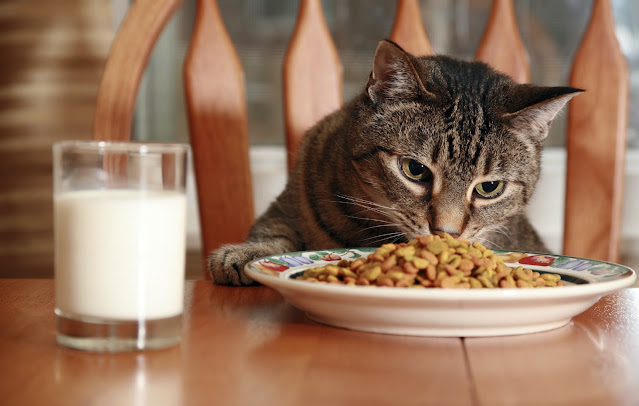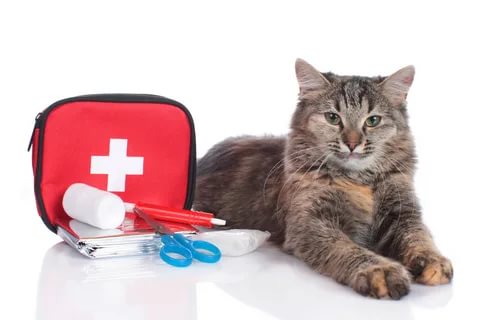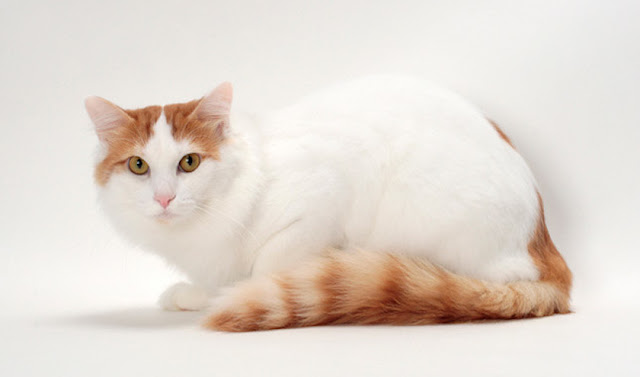It is generally recommended to feed a new cat a high-quality, age-appropriate diet that is formulated for their specific life stage (kitten, adult, senior).
Wet food can be a good option as it contains more moisture, which can be beneficial for cats, especially if they are prone to urinary tract issues.
Dry food can also be offered, but it should be of high quality and not contain too many fillers. You should also consult with your
veterinarian for specific dietary recommendations for your new cat, especially if they have any health conditions.
It's important to note that cats are obligate carnivores, which means they require a diet that is high in protein and low in carbohydrates.
You should look for a food that lists a meat or fish protein as the first ingredient, and avoid foods that contain a lot of fillers such as corn, wheat, and soy.
It is also a good idea to offer a variety of foods to your cat, including both wet and dry options, to provide them with a balanced diet.
Some cats may prefer one type of food over another, so it's worth trying different brands and types to see what your cat likes best.
In addition to a well-balanced diet, it's important to provide fresh water at all times. Cats are prone to dehydration,
so it's important to make sure they always have access to clean, fresh water.
Finally, it's important to monitor your cat's food intake and weight, as obesity can lead to a number of health problems.
If you notice any changes in your cat's appetite or weight, or if you have any concerns about their diet, be sure to consult with your veterinarian.
It's also important to keep in mind that the amount of food you should feed your cat will depend on their age, activity level,
and overall health. Kittens have different nutritional needs than adult cats and seniors, so be sure to adjust
the amount of food you are feeding accordingly. A general guideline for feeding is to provide 2-3 small meals per day for adult
cats and up to four small meals for kittens.
Also, it's important to keep in mind that feeding table scraps is not recommended. This can lead to nutrient imbalances,
and can also cause weight gain and other health problems.
Also, it's important to introduce new foods gradually and to keep an eye out for any adverse reactions.
Some cats may have food sensitivities or allergies, so it's important to be aware of any signs of digestive upset, such as vomiting or diarrhea.
Overall, providing a well-balanced diet is essential for the health and well-being of your cat. It's important to work closely with your
veterinarian to ensure that your cat is getting the right nutrition for their individual needs.
Another important aspect to consider is the feeding schedule. Many cat owners find that it's beneficial to feed their cats at the same time every day.
This can help establish a routine and can make it easier for you to monitor your cat's food intake. It's also important to provide a consistent feeding schedule,
as some cats may become stressed or anxious if their routine is disrupted.
Lastly, for cats that are prone to being overweight or have other specific health issues, it's a good idea to consider feeding them a veterinary diet.
These diets are specially formulated to address certain health conditions and can be recommended by your veterinarian.
Overall, feeding your new cat a high-quality, age-appropriate diet is essential for their health and well-being. It's important to work
closely with your veterinarian to ensure that your cat is getting the right nutrition for their individual needs.
And always keep an eye on their eating habits, weight, and overall health and adjust as needed.






Post a Comment